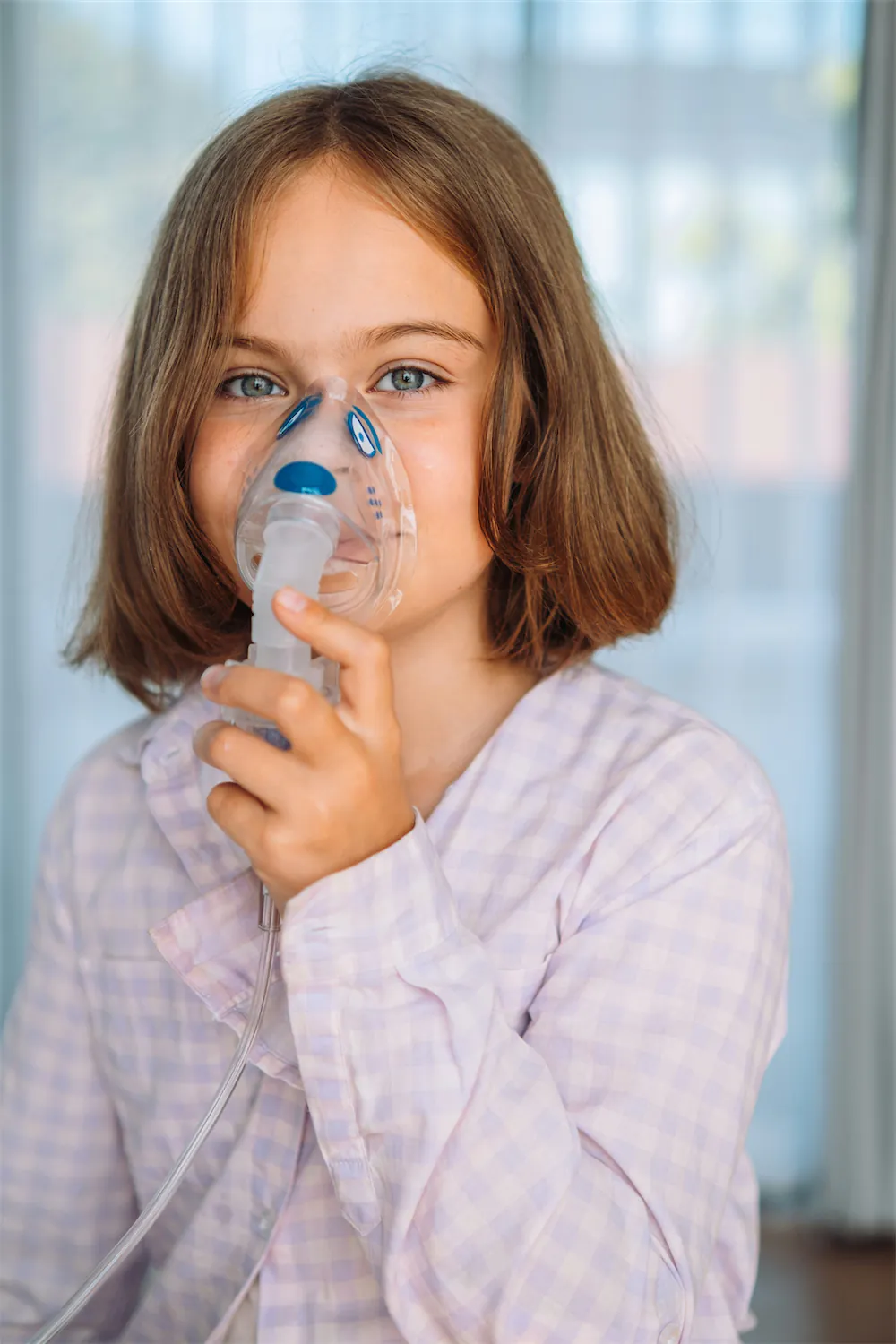Everything Parents Need to Know about Pertussis (Whooping Cough)
Everything Parents Need to Know about Pertussis (Whooping Cough)
Pertussis is a highly contagious respiratory infection also known as “whooping cough.” Pertussis can be serious in young infants, but there are effective ways to prevent your baby from getting whooping cough. This article will discuss whooping cough symptoms, how to prevent or treat whooping cough in infants, and whooping cough in older children.
Pertussis is a highly contagious respiratory infection also known as “whooping cough.” Pertussis can be serious in young infants, but there are effective ways to prevent your baby from getting whooping cough. This article will discuss whooping cough symptoms, how to prevent or treat whooping cough in infants, and whooping cough in older children.

Megan N. Freeland, PharmD
Content Writer

Dr. Marcy Borieux
Pediatrician



What is pertussis (whooping cough)?
Pertussis is a bacterial infection that affects the respiratory system (the parts of the body that help with breathing). The infection is named after the bacteria that causes it: Bordetella pertussis. These bacteria attach to the insides of the nose, mouth, and throat and then release toxins that cause the airways to swell. Even though the bacteria only remains in the body for about 3 weeks, whooping cough symptoms can last for weeks to months because of the damage caused by this swelling.
Whooping cough is highly contagious, which means it spreads easily from one person to another. A person with pertussis may spread it in the air to others by coughing or sneezing. Or, if someone with pertussis coughs or sneezes onto a surface, someone else can get infected by touching that surface and then touching their nose or mouth.
Why is whooping cough so serious?
Age and existing medical conditions are two risk factors that can make someone more likely to have a severe case of whooping cough. Babies under 12 months old have a higher risk of a severe case of whooping cough. Medical conditions that can increase the risk of severe whooping cough include illnesses that weaken the immune system and moderate or severe asthma.
What makes whooping cough so contagious?
Someone with whooping cough can be contagious from the time their symptoms start and can remain contagious two weeks after the cough begins. Many people with whooping cough don’t know they have it since the early symptoms of pertussis are similar to a common cold. This may increase the likelihood that they spread it to someone else. In many cases, babies catch pertussis from adults who don't know they have it, which makes getting your baby vaccinated important.
What are the three stages of a whooping cough infection?
Babies with whooping cough may not always follow this pattern, but in general, there are three stages of a whooping cough infection:
Stage 1: early symptoms
Stage 2: coughing spells
Stage 3: recovery
What are the stage-by-stage symptoms of whooping cough?
Stage 1 of whooping cough
The early symptoms of whooping cough may not appear until 5-10 days after exposure to Bordetella pertussis. Per the CDC, those early symptoms can last 1 to 2 weeks and typically include:
Runny nose
Stuffy nose
Sneezing
Low-grade fever (less than 100.4°F)
Mild cough
Not all babies will have severe whooping cough. Those with mild cases may have cold-like symptoms the whole time.
Stage 2 of whooping cough
One of the reasons pertussis is called whooping cough is because of a common symptom that starts 1-2 weeks after the early symptoms begin: severe coughing spells. Coughing spells, or coughing fits, include a persistent, uncontrollable, hacking cough, followed by a sucking in of air that makes a “whoop” sound. These coughing spells can be so violent that a person may break a rib, vomit, or feel exhausted even after they are over. These coughing spells can last up to 10 weeks, but typically last 1-6 weeks.
Many babies with pertussis will cough very little and may not have a fever. Babies may have a mild cough with choking spells or apnea (long, dangerous pauses in their breathing). A child with apnea may struggle to breathe or have cyanosis (skin turning blue). If you think your child may have pertussis, talk to a pediatrician right away. You can call your local pediatrician or text your pediatrician at Summer Health.
Stage 3 of whooping cough
Whooping cough recovery may take weeks or months because of the damage the bacteria causes in the airways. The coughing spells can continue during the recovery period, and if your baby gets sick with another infection, it can make the cough worse.
What are possible complications of pertussis in infants?
One in three babies under 1 year old who get pertussis will need to be hospitalized. Babies that do not receive their whooping cough vaccine on schedule are especially vulnerable.
Common complications include apnea and pneumonia (a lung infection). Rare but possible complications include uncontrolled shaking or convulsions and brain disease. Pertussis can be fatal.
Pertussis is most serious in infants, but older children, teens, and adults may also have complications like pneumonia. These complications tend to be less serious at older ages and in people who are vaccinated.
Should my baby get the pertussis vaccine?
The best way to prevent whooping cough in an infant younger than 2 months is for the child’s mother to get the Tdap vaccine during pregnancy. The Tdap vaccine includes the pertussis vaccine, as well as vaccines for diphtheria and tetanus. Diphtheria and tetanus are serious bacterial infections.
Getting Tdap during pregnancy will offer your child some protection from whooping cough until they are old enough to get vaccinated on their own, starting at 2 months old.
The pertussis vaccine is important since whooping cough is so contagious. Adults do not usually get seriously sick from whooping cough, so it’s possible for whooping cough to be passed to your baby accidentally. If they have protection from the whooping cough vaccine, they are less likely to get seriously sick from whooping cough.
My child may have pertussis (whooping cough). How is it treated?
Pertussis is a bacterial infection that can be treated with antibiotics. The earlier antibiotics are started, the better. Early treatment can make the pertussis infection less severe and help get rid of the pertussis-causing bacteria so that it is less likely to spread to others. If antibiotics are started later than 3 weeks after your baby gets sick, the antibiotics may not help.
If your child has more severe symptoms or complications, they may need to be treated in the hospital. Hospitalization is needed if your child has:
Trouble breathing
Trouble swallowing, drinking, or eating
What types of antibiotics treat a whooping cough infection?
The preferred antibiotics used to treat pertussis are known as macrolide antibiotics, which include:
azithromycin
erythromycin
clarithromycin
According to the CDC, recommended treatment varies by age:
Infants less than 1 month old: Azithromycin is the preferred antibiotic for treating pertussis. At this age, there is a risk that infants getting azithromycin or erythromycin could develop infantile hypertrophic pyloric stenosis (IHPS), an intestinal illness. The risks of pertussis and its potentially severe complications generally outweigh the possible risk of IHPS, but any young infant getting a macrolide antibiotic should be monitored for signs of IHPS.
Anyone above 1 month of age: Macrolide antibiotics are the preferred treatment. Sulfamethoxazole-trimethoprim (Bactrim) is another antibiotic treatment option for people who cannot take macrolides.
Where can my child get the pertussis vaccine?
Your local pediatrician can give your baby the tetanus, diphtheria, and pertussis vaccine (Tdap) according to the recommended vaccine schedule. You can contact a Summer Health pediatrician for any questions about the whooping cough vaccine and to ensure they are on schedule. Getting your infant vaccinated against whooping cough on schedule is an important step.
What is pertussis (whooping cough)?
Pertussis is a bacterial infection that affects the respiratory system (the parts of the body that help with breathing). The infection is named after the bacteria that causes it: Bordetella pertussis. These bacteria attach to the insides of the nose, mouth, and throat and then release toxins that cause the airways to swell. Even though the bacteria only remains in the body for about 3 weeks, whooping cough symptoms can last for weeks to months because of the damage caused by this swelling.
Whooping cough is highly contagious, which means it spreads easily from one person to another. A person with pertussis may spread it in the air to others by coughing or sneezing. Or, if someone with pertussis coughs or sneezes onto a surface, someone else can get infected by touching that surface and then touching their nose or mouth.
Why is whooping cough so serious?
Age and existing medical conditions are two risk factors that can make someone more likely to have a severe case of whooping cough. Babies under 12 months old have a higher risk of a severe case of whooping cough. Medical conditions that can increase the risk of severe whooping cough include illnesses that weaken the immune system and moderate or severe asthma.
What makes whooping cough so contagious?
Someone with whooping cough can be contagious from the time their symptoms start and can remain contagious two weeks after the cough begins. Many people with whooping cough don’t know they have it since the early symptoms of pertussis are similar to a common cold. This may increase the likelihood that they spread it to someone else. In many cases, babies catch pertussis from adults who don't know they have it, which makes getting your baby vaccinated important.
What are the three stages of a whooping cough infection?
Babies with whooping cough may not always follow this pattern, but in general, there are three stages of a whooping cough infection:
Stage 1: early symptoms
Stage 2: coughing spells
Stage 3: recovery
What are the stage-by-stage symptoms of whooping cough?
Stage 1 of whooping cough
The early symptoms of whooping cough may not appear until 5-10 days after exposure to Bordetella pertussis. Per the CDC, those early symptoms can last 1 to 2 weeks and typically include:
Runny nose
Stuffy nose
Sneezing
Low-grade fever (less than 100.4°F)
Mild cough
Not all babies will have severe whooping cough. Those with mild cases may have cold-like symptoms the whole time.
Stage 2 of whooping cough
One of the reasons pertussis is called whooping cough is because of a common symptom that starts 1-2 weeks after the early symptoms begin: severe coughing spells. Coughing spells, or coughing fits, include a persistent, uncontrollable, hacking cough, followed by a sucking in of air that makes a “whoop” sound. These coughing spells can be so violent that a person may break a rib, vomit, or feel exhausted even after they are over. These coughing spells can last up to 10 weeks, but typically last 1-6 weeks.
Many babies with pertussis will cough very little and may not have a fever. Babies may have a mild cough with choking spells or apnea (long, dangerous pauses in their breathing). A child with apnea may struggle to breathe or have cyanosis (skin turning blue). If you think your child may have pertussis, talk to a pediatrician right away. You can call your local pediatrician or text your pediatrician at Summer Health.
Stage 3 of whooping cough
Whooping cough recovery may take weeks or months because of the damage the bacteria causes in the airways. The coughing spells can continue during the recovery period, and if your baby gets sick with another infection, it can make the cough worse.
What are possible complications of pertussis in infants?
One in three babies under 1 year old who get pertussis will need to be hospitalized. Babies that do not receive their whooping cough vaccine on schedule are especially vulnerable.
Common complications include apnea and pneumonia (a lung infection). Rare but possible complications include uncontrolled shaking or convulsions and brain disease. Pertussis can be fatal.
Pertussis is most serious in infants, but older children, teens, and adults may also have complications like pneumonia. These complications tend to be less serious at older ages and in people who are vaccinated.
Should my baby get the pertussis vaccine?
The best way to prevent whooping cough in an infant younger than 2 months is for the child’s mother to get the Tdap vaccine during pregnancy. The Tdap vaccine includes the pertussis vaccine, as well as vaccines for diphtheria and tetanus. Diphtheria and tetanus are serious bacterial infections.
Getting Tdap during pregnancy will offer your child some protection from whooping cough until they are old enough to get vaccinated on their own, starting at 2 months old.
The pertussis vaccine is important since whooping cough is so contagious. Adults do not usually get seriously sick from whooping cough, so it’s possible for whooping cough to be passed to your baby accidentally. If they have protection from the whooping cough vaccine, they are less likely to get seriously sick from whooping cough.
My child may have pertussis (whooping cough). How is it treated?
Pertussis is a bacterial infection that can be treated with antibiotics. The earlier antibiotics are started, the better. Early treatment can make the pertussis infection less severe and help get rid of the pertussis-causing bacteria so that it is less likely to spread to others. If antibiotics are started later than 3 weeks after your baby gets sick, the antibiotics may not help.
If your child has more severe symptoms or complications, they may need to be treated in the hospital. Hospitalization is needed if your child has:
Trouble breathing
Trouble swallowing, drinking, or eating
What types of antibiotics treat a whooping cough infection?
The preferred antibiotics used to treat pertussis are known as macrolide antibiotics, which include:
azithromycin
erythromycin
clarithromycin
According to the CDC, recommended treatment varies by age:
Infants less than 1 month old: Azithromycin is the preferred antibiotic for treating pertussis. At this age, there is a risk that infants getting azithromycin or erythromycin could develop infantile hypertrophic pyloric stenosis (IHPS), an intestinal illness. The risks of pertussis and its potentially severe complications generally outweigh the possible risk of IHPS, but any young infant getting a macrolide antibiotic should be monitored for signs of IHPS.
Anyone above 1 month of age: Macrolide antibiotics are the preferred treatment. Sulfamethoxazole-trimethoprim (Bactrim) is another antibiotic treatment option for people who cannot take macrolides.
Where can my child get the pertussis vaccine?
Your local pediatrician can give your baby the tetanus, diphtheria, and pertussis vaccine (Tdap) according to the recommended vaccine schedule. You can contact a Summer Health pediatrician for any questions about the whooping cough vaccine and to ensure they are on schedule. Getting your infant vaccinated against whooping cough on schedule is an important step.
References
Centers for Disease Control and Prevention. About Whooping Cough. https://www.cdc.gov/pertussis/about/index.html
Centers for Disease Control and Prevention. Symptoms of Whooping Cough. https://www.cdc.gov/pertussis/signs-symptoms/index.html
Skoff TH, Deng L, Bozio CH, Hariri S. US Infant Pertussis Incidence Trends Before and After Implementation of the Maternal Tetanus, Diphtheria, and Pertussis Vaccine. JAMA Pediatr. 2023;177(4):395–400. doi:10.1001/jamapediatrics.2022.5689
CDC Morbidity & Mortality Weekly Report. Recommended Antimicrobial Agents for the Treatment and Postexposure Prophylaxis of Pertussis. 2005;54(RR14):1-16. https://www.cdc.gov/mmwr/preview/mmwrhtml/rr5414a1.htm
MedlinePlus. Pyloric stenosis in infants. https://medlineplus.gov/ency/article/000970.htm
Centers for Disease Control and Prevention. About Whooping Cough. https://www.cdc.gov/pertussis/about/index.html
Centers for Disease Control and Prevention. Symptoms of Whooping Cough. https://www.cdc.gov/pertussis/signs-symptoms/index.html
Skoff TH, Deng L, Bozio CH, Hariri S. US Infant Pertussis Incidence Trends Before and After Implementation of the Maternal Tetanus, Diphtheria, and Pertussis Vaccine. JAMA Pediatr. 2023;177(4):395–400. doi:10.1001/jamapediatrics.2022.5689
CDC Morbidity & Mortality Weekly Report. Recommended Antimicrobial Agents for the Treatment and Postexposure Prophylaxis of Pertussis. 2005;54(RR14):1-16. https://www.cdc.gov/mmwr/preview/mmwrhtml/rr5414a1.htm
MedlinePlus. Pyloric stenosis in infants. https://medlineplus.gov/ency/article/000970.htm
Centers for Disease Control and Prevention. About Whooping Cough. https://www.cdc.gov/pertussis/about/index.html
Centers for Disease Control and Prevention. Symptoms of Whooping Cough. https://www.cdc.gov/pertussis/signs-symptoms/index.html
Skoff TH, Deng L, Bozio CH, Hariri S. US Infant Pertussis Incidence Trends Before and After Implementation of the Maternal Tetanus, Diphtheria, and Pertussis Vaccine. JAMA Pediatr. 2023;177(4):395–400. doi:10.1001/jamapediatrics.2022.5689
CDC Morbidity & Mortality Weekly Report. Recommended Antimicrobial Agents for the Treatment and Postexposure Prophylaxis of Pertussis. 2005;54(RR14):1-16. https://www.cdc.gov/mmwr/preview/mmwrhtml/rr5414a1.htm
MedlinePlus. Pyloric stenosis in infants. https://medlineplus.gov/ency/article/000970.htm
Summer Health offers fast and reliable pediatric urgent care through online doctors, all via text. Whether you’re worried about your baby's fever, rashes, or other children's health concerns, we provide expert advice and support anytime, right from your phone.

Never miss a post!
Sign up for our newsletter to receive articles and guides directly to your inbox!










